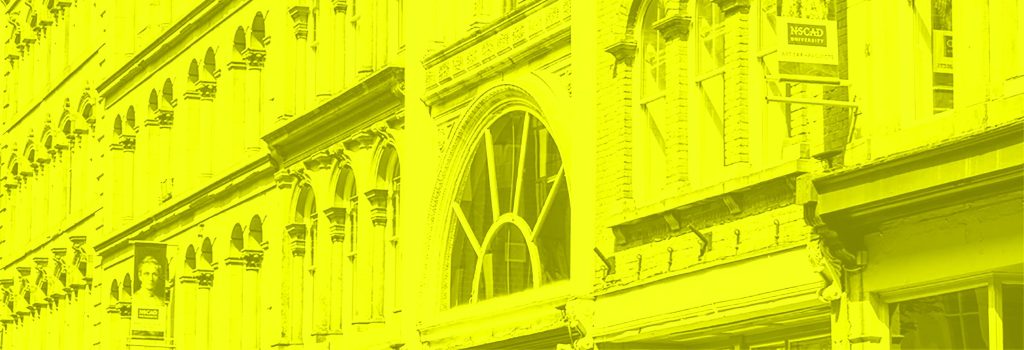Dear students, faculty, staff, and NSCAD community,
We are very pleased to announce registration for the 2021 summer semester is now open and we are ready to welcome students to continue their academic journeys at NSCAD from anywhere in the world.
NSCAD’s renowned arts, craft and design educators are looking forward to delivering more than 40 highly engaging online courses scheduled in one of the following stages:
- ‘S’ or the full semester (May 10 – August 13)
- ‘SA’ or the first half of the semester (May 10 – June 25)
- ‘SB’ or the second half of the semester (July 5 – August 20)
A full list of the online courses for the 2021 summer semester is available here. We’ve also recently added two new courses to the summer semester catalogue:
- ARTS-2030/CRFT-2030, Daily Practice: Record and Respond. This course will help students to grow in skills of observation and recording, and develop a considered way of working that is attentive to the world around them.
- TEXL-3321, Woolgathering: Revitalizing a Local and Sustainable Wool Industry. Students will conduct research to support the development of a sustainable wool industry in the Atlantic region.
These new courses will be open for registration as soon as their timetables are complete. Descriptions of some of our inspiring course offerings are included below this message.
Click here to register for a summer semester course. Once you are signed in, follow these step-by-step instructions.
Experiencing problems accessing Self-Service? Visit the Troubleshooting Login Issues page. Also, please note that students will now be asked to verify their contact information before they can register.
If you’re not a NSCAD student yet, click here to send us an email about the courses for which you’d like to register.
As always, we will be following the requirement of the latest NS Public Health directives to plan and deliver a multi-modal classroom experience (depending on the course) that may include:
- purely online, synchronous, interactive and video-captured learning approaches
- online learning with select studio access
- face-to-face learning in rotating cohorts
All online students will continue to have the same access to support as facility-based students including the NSCAD library, academic advising, writing centre, accessibility services and accommodation.
Wondering what taking an online course at NSCAD looks like? Here’s a sample of some of the 500 instructional videos NSCAD’s Learning Commons team produced for faculty and instructors teaching online.
We look forward to meeting you during the 2021 summer semester!
Sincerely,
Martine Durier-Copp, PhD
Acting Vice-President (Academic & Research) and Provost
NSCAD University
AHIS 2505(S) – Survey of Indigenous Art History explores material, visual and cultural production and performance histories of Indigenous art in Canada from time immemorial to present day. Organized both territorially and thematically, the course is situated in relation to issues of representation, self-determination, resurgence, continuity, nationhood, colonial expansion, inclusions and exclusions of national narratives and the development of Indigenous art histories.
AHIS 3463(SB) – Exhibiting Indigenous Art will explore issues of museum representation of Indigenous visual material and cultural production and investigate contemporary exhibitions of Indigenous art from 1967 to the present.
AHIS 3856(SB) – Reverse Shot: Postcolonial Cinema explores global political and postcolonial cinema from revolutionary roots to contemporary counter-narratives, and is a study of the most significant films, filmmakers and movements that make up this canon of cinema (1960s to present day). Students will analyze global cultural representation in mass-market Hollywood films to further critical thinking about the gaze and to understand postcolonial film as a vitally necessary counter-perspective or “reverse shot.”
PHOT2800(SB) – Drone Pilot Training. In collaboration with the Canadian Drone Institute, this course offers Media Arts students the training to acquire a Transport Canada Small Basic RPAS licence for legally operating Remotely Piloted Aircraft Systems (drones). With the successful completion of Transport Canada’s RPAS examination, students will be allowed to operate compliant RPAS in unrestricted airspace according to NSCAD’s Standard Operating Procedure. Students will learn common ground station interfaces and flight techniques for still and moving image based applications. This class requires co-registration in The Canadian Drone Institute’s Small Basic Drone Pilot Certificate Preparation Course, which has a fee.
ARTS-4000 – Studio 1(S). This level of independent production of art work expects students to work toward a body of finished professional work. Regular critical engagement with the instructor and the class is a key component.

